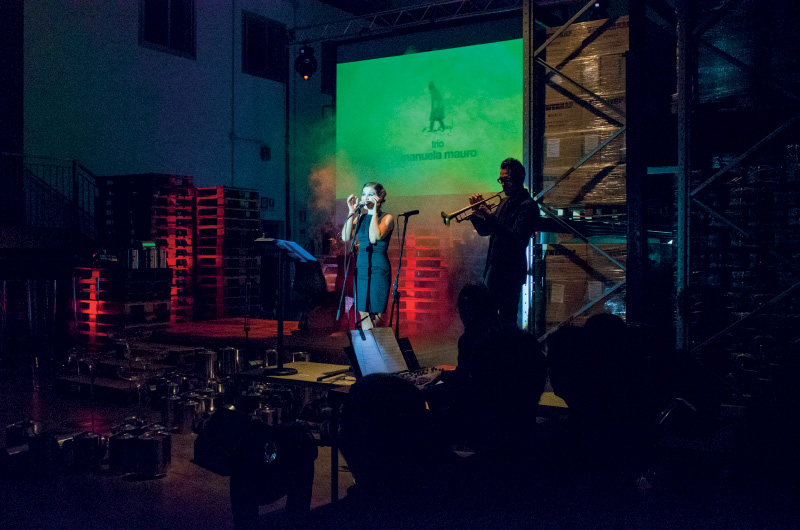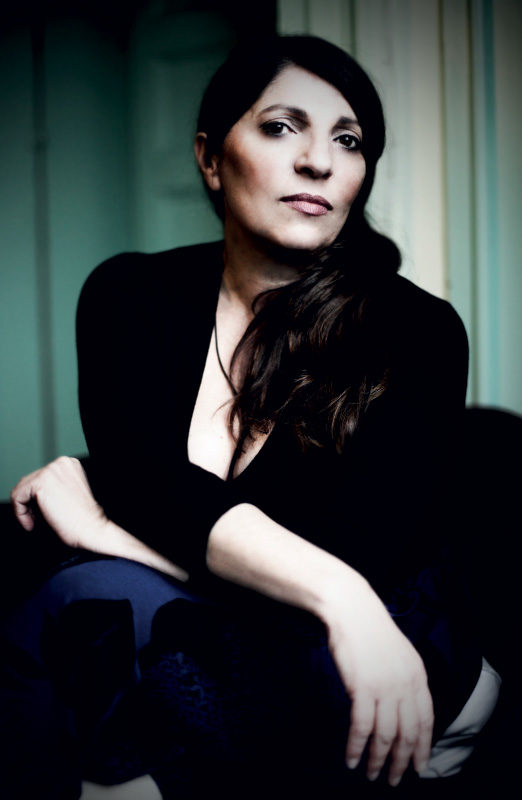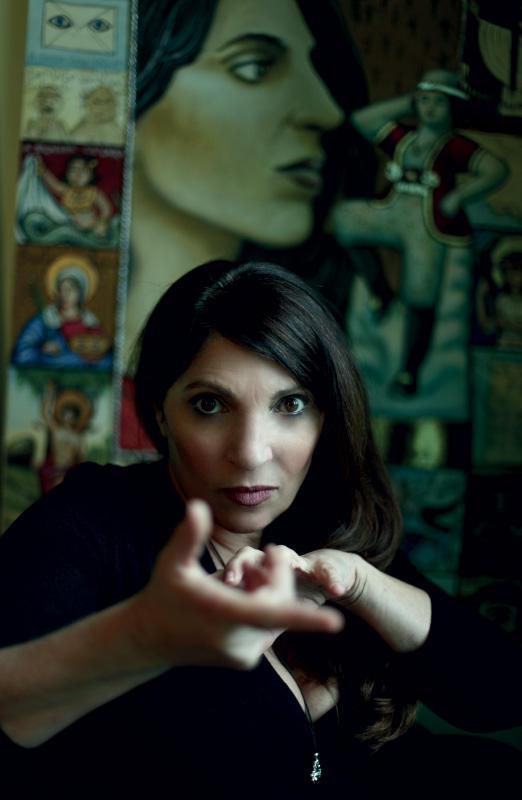Her face, her curious character full of passion reveal her real soul; the one of a woman, who believes that being a real actress means expressing oneself, without necessarily having an excellent elocution. Lucia Sardo is one of those Sicilian artists that chose roles to interpret following the principle of quality of the characters’ nature. After fifteen years of theatrical activity, she arrives at the cinema with “La discesa di Aclà a Floristella” by Aurelio Grimaldi. One of the roles that made her famous is the one of Felicia Impastato, mother of Peppino Impastato in the film “I Cento Passi” (The hundred Steps) by Marco Tullio Giordana. In the last few years, she is also been working in TV serials. Since 2008, she has been organising drama acting classes centred on contemporary theatre from the 20th century to our times. She arrives to our meeting wrapped in a black dress, which is of the same colour of her thick head of hair and her strongly communicative eyes. Eyes that light up while she talks about herself in this interview.
How did cinema change from your debuts to today?
Maybe it’s better to say how it got worse. Unfortunately, compared to the past, only a quarter of the films are produced now. This brought to the point that the culture of cinema, one of the riches of our country, has fewer possibilities to be valued and exported.
Among the characters you interpreted, which is the one that most scarred you?
Clearly, Felicia Impastato. Not only from a professional point of view; I Cento Passi (The hundred steps) is a film that nearly lead me to the Oscar. I fell in love with Felicia, because I interpreted a real, not invented character. I met her, we became friends and it is years that I perform a play dedicated to her – “Mother of the guys”. When talking about Felicia, I don’t want to refer to Mafia, but to a strong woman and to the strength of women, those with no alibies and fears.
What was the incitement that made you come closer to the world of politics?
I come from a family of politicians. My father was a serviceperson, but also passionate about politics. Even I have been it since times of the student committees. When Rita Borsellino asked me to take the field, I did it, because I used to believe and still believe in her as woman and in her ideals. However, nowadays I’m not interested in politics as I used to be.
Do you think one can be a good actor though skipping the fact to rise through the ranks, as recently happening to young people, or is sacrifice the road to success?
Actually, I believe that a real actor expresses himself with his body. You don’t need proper elocution (she makes a close “o”). I never studied it. People need real stories that can be interpreted by real people, not fake ones, with their dialect, their way of communicating. Just as you don’t need to be handsome and stereotypical to succeed. What is behind the face is more important than the face itself.
Long-cherished dream?
I’ve been dedicating my time to writing and screenwriting. My dream (which may not stay unrealized for long time) is seeing a film created with one my characters.
Compulsory question: your relationship with coffee?
My dynamic and impetuous character prevents me from misusing it. That’s why I drink decaffeinated and barley coffee. However, what I can’t and I don’t want to renounce is the scent a coffeemaker emanates.

Recommended song for the reading of the present article: Summertime – Janis Joplin



